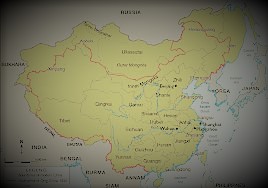A new GLO Discussion Paper finds that the effectiveness of the scheme for inpatient care use has increased significantly.
GLO Discussion Paper No. 1180, 2022
The Power of Public Insurance With Limited Benefits: Evidence from China’s New Cooperative Medical Scheme – Download PDF
by Lin, Lin & Zai, Xianhua
GLO Affiliate Xianhua Zai

Author Abstract: Low-income people in low- and middle-income countries (LMICs) have limited access to healthcare when they are sick. To address this issue, the governments of LMICs have initiated health insurance programs that target these poor populations. However, the health benefits these programs provide are often limited due to resource constraints in LMICs. In this paper, we study the New Cooperative Medical Scheme (NCMS), a limited coverage insurance program for rural residents in China, to explore its effectiveness, and the mechanisms that contribute to its successes, if any. In a plausibly random design, we exploit the variation in provincial NCMS enrollment rate 2004-2011 to identify its average treatment effect. We find that although the NCMS’ coverage is limited, its effect on inpatient care use increases significantly. This increase is mainly driven by inpatient care delivered by primary care providers, which has the most generous reimbursement rates. In addition, we show that half of the increase in inpatient care use is attributable to the NCMS’ healthcare investment in rural providers. For outpatient services, while the total effect is not statistically significant, we find that the utilization pattern across providers is consistent with the differential payment design of the NCMS: rural residents use more outpatient care provided by primary care institutions where they can get higher reimbursement rates. In addition, we show evidence that rural residents substitute outpatient services in hospitals for that in township health centers. Lastly, results on health expenditure and health outcomes indicate that the introduction of the NCMS does not affect out-of-pocket medical expense or all-cause mortality rates among rural residents, but it does reduce mortality for specific diseases such as AIDS and infectious disease.
PUBLISHED
Vol. 35, Issue 4, October 2022: Journal of Population Economics (JOPE): 15 articles https://link.springer.com/journal/148/volumes-and-issues/35-4
CiteScore of JOPE moves up from 3.9 (2020) to 6.5 (2021). LINK
Similar, its Impact Factor is now 4.7 (2021) after 2.8 (2020)! LINK

GLO Discussion Papers are research and policy papers of the GLO Network which are widely circulated to encourage discussion. Provided in cooperation with EconStor, a service of the ZBW – Leibniz Information Centre for Economics, GLO Discussion Papers are among others listed in RePEc (see IDEAS, EconPapers). Complete list of all GLO DPs – downloadable for free.
The Global Labor Organization (GLO) is an independent, non-partisan and non-governmental organization that functions as an international network and virtual platform to stimulate global research, debate and collaboration.
Ends;

